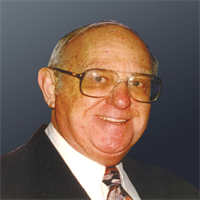Secrets About Business Succession, Business Valuation and Estate Planning
August 1, 2013Comments
When a business owner calls me to consult, the three most common questions are:
1) “Can you help me tax-effectively sell/transfer my business?”
2) “Can you value my business?”
3) “Can you give me a second opinion on my estate plan?”
Experience has taught me that the right answer must encompass all three questions, because: a sale or transfer of the business requires a valuation; a valuation usually involves some kind of sale or transfer (both have significant tax consequences); and if you own a business, your estate plan cannot be complete without a valuation and/or a transfer/sale plan (a succession plan).
The sale or transfer of your business can only take place in one of two important time frames: during your life or after your death. An unplanned sale after death almost als results in a disaster. So, we are going to stay in a lifetime-planning mode to solve your succession problems while you are alive and well.
The Secrets
Business Valuation—The secret is how to maximize the discount of the business for tax purposes. Here’s an example: Success Co. (owned 100 percent by Joe) now is run by Joe’s son (Sam). Joe wants to sell Success Co. to Sam for $8.6 million (the value determined by a professional appraiser).
Now the secret: Joe recapitalizes Success Co. (100 shares of voting stock/20,000 shares of nonvoting stock)—a tax-free transaction. Only the nonvoting stock will be sold to Sam (using an intentionally defective trust, IDT—more explained later). The appraiser updated his valuation, valuing the voting stock at $100,000 and the nonvoting stock at $5.1 million. The nonvoting stock is entitled to various discounts—of 40 percent—under the tax law.
And a big bonus to Joe: keeping the voting stock, so he can still control Success Co.
Sale of Success Co.—Here’s how I explained the tax consequences of a sale to Joe: “If you sell Success Co. to Sam, each $1 million of the price will be socked with three taxes:
1) “Sam must earn $1.666 million. The 40 percent income tax (federal and state) nails Sam for $666,000. Only $1 million is left.
2) “Sam pays you $1 million for your stock (assume zero tax basis). Your capital gains tax enriches the IRS by $200,000…now only $800,000 is left.
3) “At your death, the IRS siphons off another 40 percent, or $320,000, for estate tax…only $480,000 left.”
Now the secret: Instead of an outright sale, sell the nonvoting stock of Success Co. for the same $5.1 million to an IDT. Joe gets paid in full with an interest-bearing note from the IDT.
Sam is the beneficiary of the trust and has no obligation to pay the note. Instead, the cash flow of Success Co. is used to pay the note and interest. Every penny Joe receives for payment of the note, plus interest is tax-free.
Joe and Sam will save about $200,000 in taxes for each $1 million of the price (about $1,020,000 in tax savings).








